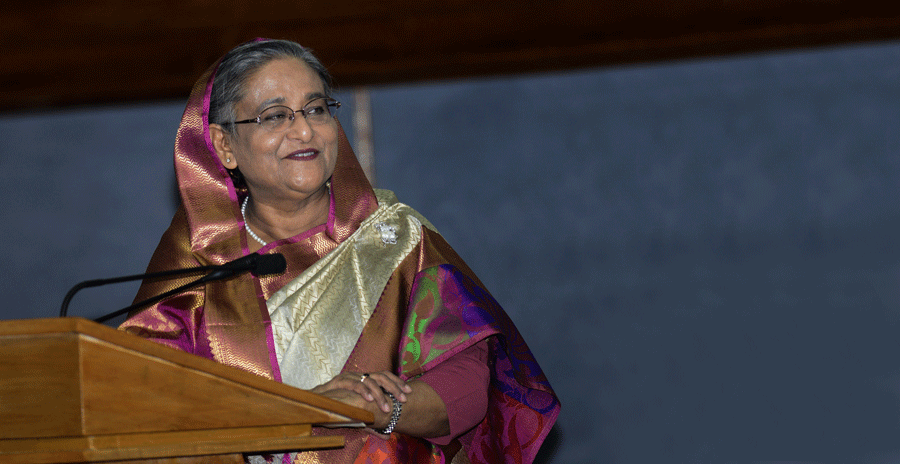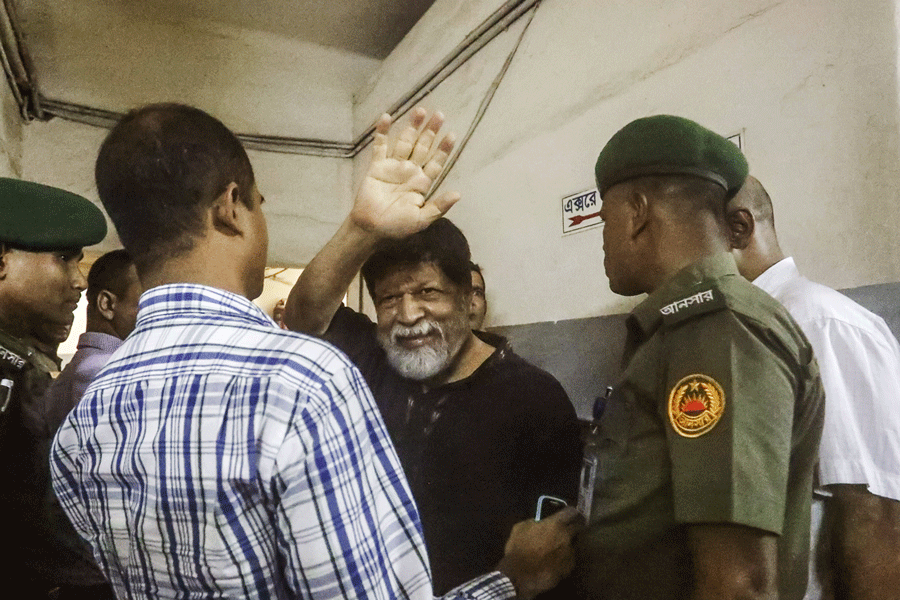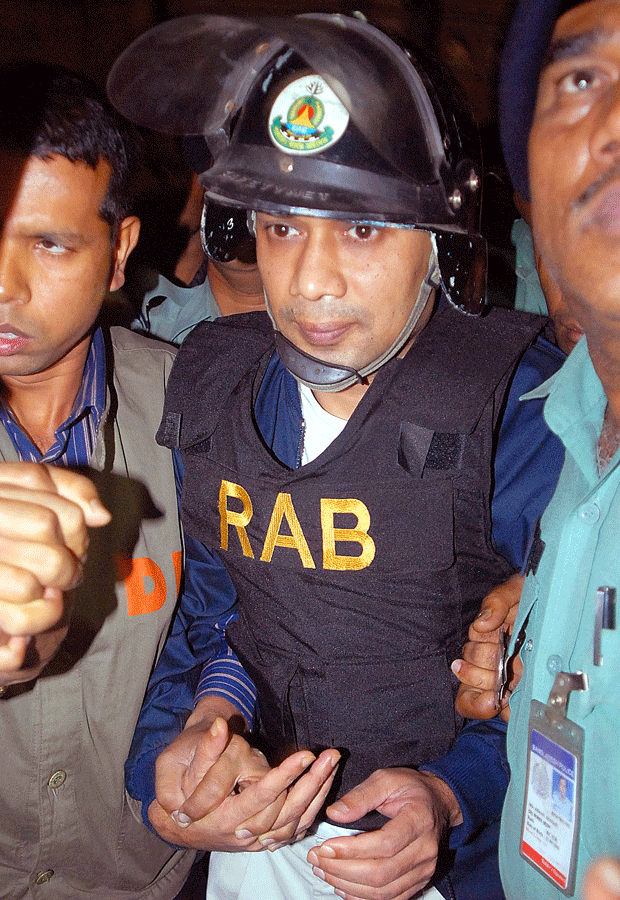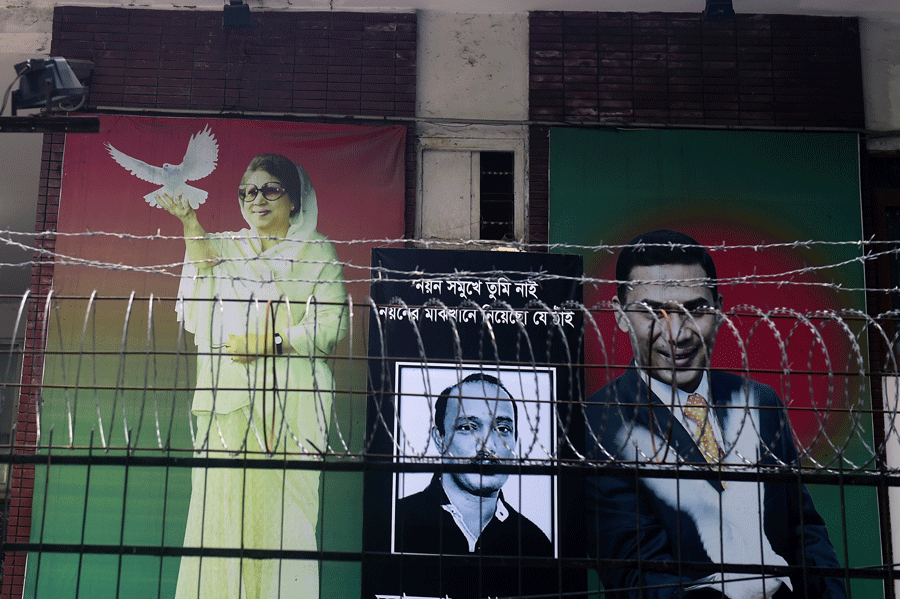From Democrat to Dictator
By Ammar Shahbazi | Newsbeat International | Published 7 years ago

Is the heavy-handedness of Bangladeshi Prime Minister, Sheikh Hasina Wajed, a mark of insecurity, or overconfidence? It is difficult to say. But few can deny that Hasina, who turned 71 this October, is one of the most successful leaders her country has seen. For almost a decade, she ruled Bangladesh with relative stability and ushered in an economic growth unrivalled in the nation’s history.
For the last three decades, Bangladeshi politics has been dubbed as the “battle of two Begums” – whoever is in power silences the opposition and wrestles to control state institutions. Such is the political culture that has prevailed under democracy in the country.
“Democracy in Bangladesh is fundamentally flawed due to the absence of meaningful democratic debate and accountability,” says Dr Ipshita Basu, a Senior Lecturer in International Relations and Politics at the University of Westminster, in an email interview with Newsline. “Laws and power invested in the name of counter-terrorism and anti-corruption measures have allowed the party in power to clamp down heavily on the opposition.”
As the world lauded Bangladesh’s miraculous turnaround from what Henry Kissinger once called a “bottomless basket,” to a country well on its way to becoming an Asian Tiger, Hasina consolidated her hold on power in ways her predecessors never even dared to dream of.
By some accounts, her vote bank remains intact. But some of her recent policies regarding press freedom, political opposition and the judiciary, bear all the signs of a dictator-in-the-making – a kind that the country has never seen before.
She forced the country’s chief justice into exile and dismembered an opposition that struggles to gather momentum ahead of a general election slated to be held in January 2019. But the most worrying of all is her systematic onslaught on the free press and the detention of practically anyone who dares to speak against the government.
On October 9, Tarique Rahman, son of Khaleda Zia – and the heir-apparent of the main opposition party, the Bangladesh National Party (BNP) – was sentenced to life imprisonment after being accused by Hasina of masterminding a terror attack on an Awami League (AL) rally in 2004. Khaleda Zia, meanwhile, remains behind bars on charges of corruption.
In her decade-long rule, Hasina has uprooted the BNP from the ground, using the dreaded paramilitary force, the Rapid Action Battalion (RAB), and gone after low-ranking workers, practically crushing any semblance of opposition for good.

Stifling dissent: Award-winning photographer Shahidul Alam arrested by police in Dhaka.
But Sheikh Hasina is more than just an elected prime minister. Her politics is informed by her personal history, which evolved with the creation of Bangladesh. There are few countries in the world where the story of a ruling family is so irrevocably tied to the history of the nation and its identity. And this makes Hasina an anomaly.
Merely four years after the country’s independence, on the night of August 15, 1975, a group of mid-ranking Bangladeshi military men massacred Hasina’s entire family. The founding father of the nation, Sheikh Mujibur Rahman and 21 other family members, including an eight-year-old brother, were murdered in cold blood. By some quirk of history, those responsible had managed to pass the notorious Indemnity Act of 1975, which essentially absolved all those involved in the crime.
So, Hasina’s claim to power is more than political. It’s personal. And that sheds a crucial spotlight on the mind at work. There is a sense of vengeance and a complex web of political ambitions at play, including a saviour-complex.
The gist of the AL’s ideological narrative is that after the death of the founding father, the country was overtaken by a bunch of anti-freedom movement elements that included the religious right and those who collaborated in protecting the killers of Mujibur Rahman. And so, the party’s core objective in politics is to get rid of the traitors and revive the spirit of the 1971 struggle.
The rhetoric and semantics of this narrative sound appealing at the outset. It is simple and rooted largely in truth. It talks about the historical reality of Bangladesh and explains its raison d’etre. Yet, at the same time, it provides the AL with a baton to beat anyone who chooses an alternative narrative and label them a traitor.

Political victimisation?: Tarique Rahman is escorted to court by the Rapid Action Battalion.
The forced resignation in 2017 of Surendra Kumar Sinha, the first Hindu Chief Justice of Bangladesh, after he chose to obstruct the government’s plan to rein in the courts, is an example of how the narrative can be used for political sloganeering. Sinha had ruled against the 16th Amendment, which would allow the Parliament to sack judges. A statement made by him, that “no country is made up of, or by, one person,” was interpreted by Hasina as being disrespectful to her father. The chief justice was, therefore, accused of “siding with anti-liberation war forces.” He now lives in Canada, in forced exile.
Hasina’s political opponents are often accused of being ‘anti-freedom movement’ elements. To an extent, those standing opposite the AL have a soft-corner for Pakistan. It is not about Pakistan as much as it is about Muslim nationalism in South Asia. The battle is an ideological one.
The Khaleda Zia-led BNP, for instance, does not accept Sheikh Mujibur Rahman as the founding father of the country and has, historically, enjoyed a warm relationship with Pakistan. Its main coalition partner is the Jamaat-e-Islami (JI), which would explain its political outlook.
A seemingly trivial act of political symbolism can better explain what is at stake. The BNP uses ‘Allah ho akbar’ in its political campaign, while the AL prefers ‘Allah Shorbo Shoktiman’ (‘Allah is the most powerful’). Such subtle tweaking of words come from the deep-seated friction that plagues identity politics in Bangladesh. The BNP goes with the standard Arabic version, while the AL chooses to say the same in Bengali, in a bid to keep the Muslim and Bengali identity intact.
After the war of independence, the accused in the war crimes tribunal belonged mostly to the JI, which had publicly sided with the Pakistan Army in the nine-month long war. Some BNP leaders were also held responsible for being collaborators. They were duly hanged after controversial trials.
Hasina cemented her position on the political chessboard of Bangladesh by championing India’s interests. She has always been forthcoming about her party’s close ties with the hardline Hindu nationalist Bharatiya Janata Party (BJP) and Narendra Modi. In fact, in May 2017, after returning from a much-vaunted visit to India, Hasina said that India should remember what she has done for the country.
The AL, which has a historic relationship with India, “Is supposed to be pro-India, while the BNP is pro-Middle East and pro-Pakistan,” explains Basu. “For Hasina, India is the saviour of Bangladesh and more personally, of herself and her family. Khaleda Zia’s anti-India rhetoric is rooted in her opposition to the AL. For India, the continuation of Hasina’s rule will no doubt be welcomed, whereas a BNP-JI alliance in power is something to fear.”
So far, Hasina has been successful in peddling a pro-secular image and in following India’s cue. This has generally been positive for Bangladesh, as investment has flown in and there is stability in the country.

For a country like Bangladesh, which has relied heavily on international NGOs for subsistence since its birth, ignoring calls from the likes of Human Rights Watch (HRW) and the International Court of Justice (ICJ) was never the norm. But robust economic growth, particularly in the manufacturing sector, and a confident outlook of the future has allowed Hasina to soldier on, despite allegations of human rights abuses and a dicatorial clampdown on the media, civil society and opposition leaders.
But she compensates when necessary. Take, for instance, the Rohingya crisis. She let more than a million refugees enter Bangladesh in less than a week and showed magnanimity with a simple decree that did not threaten her position in the power equation. This act of benevolence took the steam out of international NGOs that were critical of her otherwise draconian crackdowns on opposition activists.
In May, her government began a crackdown on Yaba-peddlers. Yaba, an addictive meth substance, crept into Bangaldeshi cities mainly from Myanmar, in early 2000. In the sudden crackdown, more than 200 people were killed in less than three weeks. The episode did not draw a strong reaction as the world was busy extolling Bangladesh for handling the Rohingya crisis competently.
There is little doubt that Hasina’s political acumen, coupled with her willingness to use force whenever necessary, helped her navigate the many setbacks she has faced in office. As a leader of a nationalist party that is secular in its outlook and has a history of finding natural allies on the Left, she did not set any boundaries for herself ever since she came to power in 2009.
She caved in to the demands of Islamists and went on to unleash her wrath on the most Left-leaning secular intellectuals, as witnessed in the case of reputed photographer Shahidul Alam.
Despite her autocratic tendencies, Sheikh Hasina has moulded the circumstances in her favour and is secure in the saddle. While the criticism of her clampdown on the press and civil society is gathering momentum, it seems she is all set to win the next general election, having removed all the obstacles in her path.


